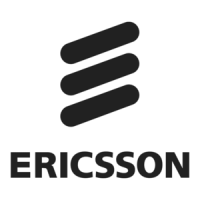Getting Started
Block Present Use Reference
128.0.0.0/16 Reserved but subject to allocation ---
169.254.0.0/16 Link Local ---
172.16.0.0/12 Private-Use Networks [RFC1918]
191.255.0.0/16 Reserved but subject to allocation ---
192.0.0.0/24 Reserved but subject to allocation ---
192.0.2.0/24 Test-Net ---
192.88.99.0/24 6to4 Relay Anycast [RFC3068]
192.168.0.0/16 Private-Use Networks [RFC1918]
198.18.0.0/15 Network Interconnect Unit Benchmark Testing [RFC2544]
223.255.255.0/24 Reserved but subject to allocation ---
224.0.0.0/4 Multicast [RFC3171]
240.0.0.0/4 Reserved for Future Use [RFC1700, p4]
Notes: The control network and data networks should not conflict.
It is suggested that the ranges for these networks are in the Private-Use
Networks as listed in the summary Table.
IP Address range 192.168.10.x (subnet 255.255.255.0) is used for internal
unit communications, so should not be used for external communications.
3.6 How to Configure Ethernet Control Ports
Overview
The Base Chassis has two Ethernet control ports that support IEEE 802.3
100BaseTX and 1000BaseT protocols. The control ports are accessible via RJ-45
connectors mounted on the rear panel of the unit.
Figure 3.2 Ethernet Control Port Numbering
The Ethernet control ports are used to connect the unit to a control computer for
control through a web browser or to a control system for control through nCompass
Control.

